#tag: john stewart is the brains of the operation
Text

brb daydreaming about Hal as a kid watching baseball. (Green Lantern Rebirth #1 [2004])
#tag: hal jordan is my emotional support green lantern#tag: john stewart is the brains of the operation#tag: guy gardner is the warrior#tag: dc comics
63 notes
·
View notes
Text
Expense Account, First Page...
On February 11, 1949, Yours Truly, Johnny Dollar premiered on CBS and kicked off the career of “America’s fabulous freelance insurance investigator.” Dollar traveled the world investigating cases of insurance fraud until 1962. Each mystery was narrated by Johnny as he itemized his expense account for his bosses at “the home office.” The series aired up until the end of the Golden Age of Radio in 1962, and it remains one of the most beloved detective programs of the era.
What made the show work? The format of the show is a great hook - Dollar narrates the story as he itemizes his expense account for his employers. As the case progresses, another expense is rattled off. This was played up for humorous effect in the show’s early days, leading to a frequent announcer tag line - “At insurance investigation, he’s only an expert. At making out his expense account, he’s an absolute genius!“ Dollar was sharp, a bit cynical, and had brains to match his brawn.
But in his first several years on the air, Johnny Dollar was a good - but not great - radio detective. There was little about the show to distinguish it from the sea of detective shows cluttering the airwaves. Three different actors (Charles Russell, Edmond O'Brien, and John Lund) played Dollar between 1949 and 1954. (Dick Powell was actually the first to play Johnny Dollar in a 1948 audition program. Before the show went to series, Powell opted to star in Richard Diamond, Private Detective on NBC.) The insurance investigation angle provided a different flavor for the show, but those early shows weren’t quite in the same league as Sam Spade or Philip Marlowe. The show actually left the airwaves in 1954, and Johnny Dollar might have ended up as a radio footnote had it not been for a revamped series that returned to the air in 1955.
Under the direction of Jack Johnstone, Johnny Dollar was reinvented as a five-night-a-week 15 minute serial. Johnstone was a veteran radio writer and director who previously brought Buck Rogers and Superman to radio. Just before he took the helm of Johnny Dollar, he served as producer and director for the outstanding NBC western series The Six Shooter, which brought Jimmy Stewart to weekly radio as its star. Johnstone served as producer and director of the new series, and he frequently provided scripts. With 75 minutes instead of 30 for stories every week, Johnstone and his fellow writers could deliver complex plots with plenty of twists and turns and nuanced characters with more depth than the usual supporting players in a weekly detective show.
But talent behind the scenes is only part of the story. Johnny Dollar’s renaissance owes as much to the man in front of the microphone - a strong, dynamic actor who breathed life and a personality into the detective. And it was an actor who was no stranger to solving crimes on the airwaves.
Bob Bailey was fresh off a run as private eye George Valentine in Let George Do It when he was cast as Dollar. He sank his teeth into the king-size scripts, and his performance fleshed out the character in a way that the previous actors had never quite managed to nail down. His Johnny Dollar would more often than not get too involved in his cases, and he might fall too hard for a female suspect. He loved to fish, and his clients might exploit that to persuade him to take a dangerous job in a far-off locale where he could be promised a good catch. He was unpredictable, funny, and dangerous. In the early years, Johnny Dollar was just a radio detective. With Jack Johnstone’s words and Bob Bailey’s voice, he joined the ranks of Marlowe and Spade, characters with long histories on the page behind them.
The series continued in the serial format until 1956 when it returned to 30 minutes once a week. While the individual shows may not have always been as rich as the five-part stories, Bailey’s performance remained strong. He remained in the role until 1960, when CBS shut down its West Coast radio operations and moved its dramatic productions to New York. The show continued for another two seasons; Jack Johnstone continued to provide scripts but was replaced as director. Bob Readick and Mandel Kramer starred as Dollar until he turned in his last expense account on the final night of network radio on September 30, 1962.
Nearly all of the episodes of the show survive, and while each actor brought something unique to the character, it is Bailey’s Johnny Dollar that stands head and shoulders above them all. His wry humor, his hard edge, and his world-weary cynicism come through in every line of his performance, and there are years of episodes for today’s audiences to rediscover and enjoy.
Check out this episode!
13 notes
·
View notes
Note
okay so somebody asked me to rank the green lanterns a couple days ago and i just did it based on the general Vibes i got off each one because i don't know enough about the lanterns and now i want to hear from an expert SO: RANK EACH OF THE GREEN LANTERNS (the human ones but if you want to include others go crazy) FROM NOT-SO-BEST TO BEST AND EXPLAIN WHY
OKAY SO, first off, i love you. you should know that. second off, there’s good and bad sides to all four human green lanterns and really this is just personal preference, and 3/4 of these are subject to change at some point, but this is where we stand as of right now:
4. Guy Gardner
first off, he was Hal’s case worker in Emerald Dawn II (1991), because Hal got in trouble for drunk driving and got sentenced to a maximum security prison for 90 days to be used as an example. And I just, I don’t like this plot in Hal’s life, it doesn’t make a ton of sense with his character or his profession (it would literally end a pilot’s career.) anyway, enough about Hal Jordan because I’m supposed to be talking about Guy here. Guy’s trying to help Hal out which, gets him points in my book, but he also ends up like hating Hal at the end of this arc and it’s just like, I’m sorry, that’s unoriginal, pls try harder.
I also don’t understand this whole Vuldarian DNA plot that’s a thing with him, but his time owning a bar is cool. I just, I haven’t read a ton of his comics and i haven’t gotten attached to him yet, so that’s that. He’s in 4th, sorry Guy. Better luck next time.
3. Kyle Rayner
Kyle gets third place for two reasons: he has some pretty great interactions with Hal, with some key points of believing in Hal when he needs it the most (and that panel with the stacked rings and Hal taking Kyle flying. That panel gives me life for reasons I can’t fully put into words.), and his girlfriend was literally murdered and stuffed into a fridge. I have to respect the trauma.
Reasons I don’t like Kyle: you know how in middle school there was always that kid who would show off in gym class? or like your favorite teacher would pick some new kid to champion and you just kinda... hated them on instinct? Kyle’s an artist, but he has that vibe. He’s the kid in school that suddenly everyone has decided is the Best and it’s annoying. I get it, he’s meant to be like the “best green lantern,” the one to restore the corps when Hal and Parallax tore through it and then he’s a white lantern. I just... idk, he’s nice, he’s cute. I want to read more about when he was teamed up with Jason and some people have made it so that Hal has become his bother father figure which is also adorable, it’s just instinct to not make him my favorite. I’ve already done the whole phase of liking the ‘Chosen One,’ I don’t need to go back to my Harry Potter phase. idk, please universe don’t hate me for this.
2. John Stewart
okay, I have mad respect for John Stewart. It’s also instinctual. He’s the brains of the human Green Lantern operation. No, like, literally. If the four of them have one collective brain cell, John has it at least 89% of the time. He’s an architect and a former Marine, he punched Hal in the face in a bar before they were both Green Lanterns, which is hilarious because as far as I’m aware, it’s never touched on as being something either of them remembers. Kudos for not holding onto that rage, John. Hal has something to learn from you.
There’s also an interesting change in his way of thinking from when he was a Marine to his duty as a Green Lantern, and I like that growth even if it’s not always acknowledged. There is a bit during the Color Spectrum War arc where they go over his guilt at the destruction of a world, and it felt remarkably deep for a DC comic, even if it was technically part of a Hal series. He’s just one of those guys that you can’t help but respect because he seems to have all of his shit in one basket, and it’s a good counterbalance.
1. Hal Jordan
you knew this was coming. if you didn’t, then you need to go look back at what my username is and think for a while. I love Hal Jordan almost more than life itself and it might be because of how well i can relate to this man. he is the most cocky, depressed, stubborn piece of shit in the galaxy, and I LOVE HIM. okay, like, there are so many different arcs about Hal and I know people have a tendency to not like him because like he’s the modern OG and he can be a piece of shit, and like, he was the bad guy but he came back from it and I just want to say: my dudes, that’s the POINT.
Hal has flat out stated that HE doesn’t even like himself, and you think that you as a reader are supposed to like him all the time? The man's life is rife with trauma, okay. Not everything he does is going to make perfect sense if you’re not paying attention and it’s just like. Honestly I can’t explain it all. Hal runs on spite and coffee and the list of people he lives FOR is very short, but the list of people he lives IN SPITE OF is very long.
The dude runs with his gut constantly because that’s what keeps him alive. Even Sinestro has pointed out that HAL DOESN’T MAKE SENSE. He acts on instinct, he doesn’t plan out a shitload of battle strategies, and that’s how Hal manages to keep besting these people over and over.
Also just, he’s sad boy. He wants to protect people, even if it means staying away from them. He’s willing to take the blame and appear to go rogue MULTIPLE TIMES for things he believes in and to find the root of the problem and it’s just like... you really think a guy that was happy-go-lucky and didn’t sit awake at night because of how prominent his failings are in his mind would be willing to do that? you’re wrong. sorry. you don’t designate yourself as public enemy number one AFTER ALREADY FIGHTING TO COME BACK FROM THAT ONCE if you don’t have a part of your brain saying you deserve it.
ALSO HIS GRIEF FOR COAST CITY WAS JUSTIFIED AND THERES A LONG LIST OF PEOPLE THAT COULD HAVE HELPED PREVENT HAL FROM BECOMING/SUCCUMBING TO PARALLAX AND A LOT OF THEM ARE ON THE JUSTICE LEAGUE OR TINY ANCIENT BLUE SMURFS.
THANK YOU FOR COMING TO MY TED TALK, GOODNIGHT.
(also i’m not sure if my answers were coherent towards the end but yeah!! send me asks about green lanterns because I have a lot of feelings. Anyway; Hal Jordan.)
#tag: katie answers things.... sometimes#green lantern#tag: kyle rayner is a green lantern#tag: john stewart is the brains of the operation#tag: hal jordan is my emotional support green lantern#tag: guy gardner is the warrior#tag: green lanterns light#this took me over an hour to write and i have a headache so yall better enjoy this#i tried to keep it short and sweet but i got to hal and that went out the window oopsie
95 notes
·
View notes
Photo




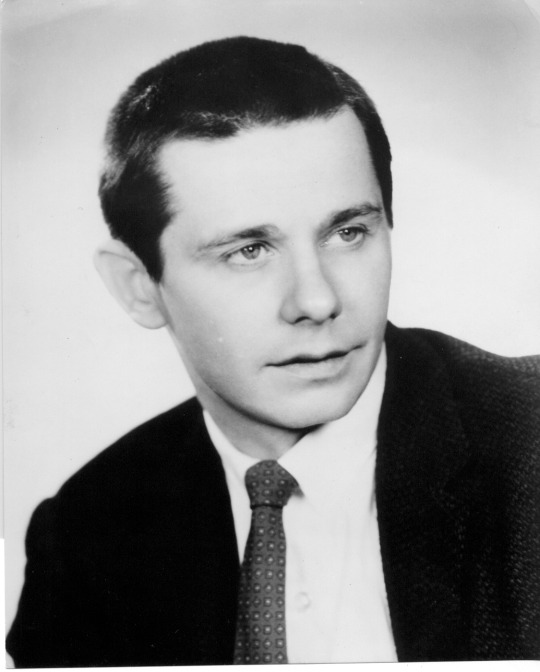
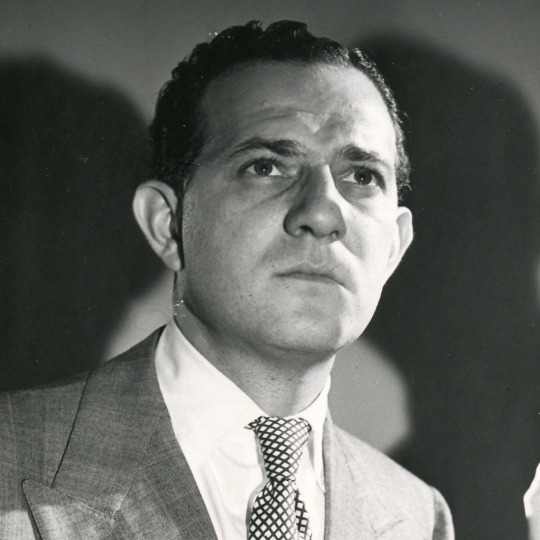
On February 11, 1949, Yours Truly, Johnny Dollar premiered on CBS and kicked off the career of “America’s fabulous freelance insurance investigator.” Dollar traveled the world investigating cases of insurance fraud until 1962. Each mystery was narrated by Johnny as he itemized his expense account for his bosses at “the home office.” The series aired up until the end of the Golden Age of Radio in 1962, and it remains one of the most beloved detective programs of the era.
What made the show work? The format of the show is a great hook - Dollar narrates the story as he itemizes his expense account for his employers. As the case progresses, another expense is rattled off. This was played up for humorous effect in the show’s early days, leading to a frequent announcer tag line - “At insurance investigation, he’s only an expert. At making out his expense account, he’s an absolute genius!“ Dollar was sharp, a bit cynical, and had brains to match his brawn.
But in his first several years on the air, Johnny Dollar was a good - but not great - radio detective. There was little about the show to distinguish it from the sea of detective shows cluttering the airwaves. Three different actors (Charles Russell, Edmond O'Brien, and John Lund) played Dollar between 1949 and 1954. (Dick Powell was actually the first to play Johnny Dollar in a 1948 audition program. Before the show went to series, Powell opted to star in Richard Diamond, Private Detective on NBC.) The insurance investigation angle provided a different flavor for the show, but those early shows weren’t quite in the same league as Sam Spade or Philip Marlowe. The show actually left the airwaves in 1954, and Johnny Dollar might have ended up as a radio footnote had it not been for a revamped series that returned to the air in 1955.
Under the direction of Jack Johnstone, Johnny Dollar was reinvented as a five-night-a-week 15 minute serial. Johnstone was a veteran radio writer and director who previously brought Buck Rogers and Superman to radio. Just before he took the helm of Johnny Dollar, he served as producer and director for the outstanding NBC western series The Six Shooter, which brought Jimmy Stewart to weekly radio as its star. Johnstone served as producer and director of the new series, and he frequently provided scripts. With 75 minutes instead of 30 for stories every week, Johnstone and his fellow writers could deliver complex plots with plenty of twists and turns and nuanced characters with more depth than the usual supporting players in a weekly detective show.
But talent behind the scenes is only part of the story. Johnny Dollar’s renaissance owes as much to the man in front of the microphone - a strong, dynamic actor who breathed life and a personality into the detective. And it was an actor who was no stranger to solving crimes on the airwaves.
Bob Bailey was fresh off a run as private eye George Valentine in Let George Do It when he was cast as Dollar. He sank his teeth into the king-size scripts, and his performance fleshed out the character in a way that the previous actors had never quite managed to nail down. His Johnny Dollar would more often than not get too involved in his cases, and he might fall too hard for a female suspect. He loved to fish, and his clients might exploit that to persuade him to take a dangerous job in a far-off locale where he could be promised a good catch. He was unpredictable, funny, and dangerous. In the early years, Johnny Dollar was just a radio detective. With Jack Johnstone’s words and Bob Bailey’s voice, he joined the ranks of Marlowe and Spade, characters with long histories on the page behind them.
The series continued in the serial format until 1956 when it returned to 30 minutes once a week. While the individual shows may not have always been as rich as the five-part stories, Bailey’s performance remained strong. He remained in the role until 1960, when CBS shut down its West Coast radio operations and moved its dramatic productions to New York. The show continued for another two seasons; Jack Johnstone continued to provide scripts but was replaced as director. Bob Readick and Mandel Kramer starred as Dollar until he turned in his last expense account on the final night of network radio on September 30, 1962.
Nearly all of the episodes of the show survive, and while each actor brought something unique to the character, it is Bailey’s Johnny Dollar that stands head and shoulders above them all. His wry humor, his hard edge, and his world-weary cynicism come through in every line of his performance, and there are years of episodes for today’s audiences to rediscover and enjoy.
#Yours Truly Johnny Dollar#Old Time Radio#Golden Age of Radio#Bob Bailey#Mandel Kramer#John Lund#Edmond O'Brien#Charles Russell#Bob Readick
23 notes
·
View notes
Text
"Expense account, item one..."
On February 11, 1949, Yours Truly, Johnny Dollar premiered on CBS and kicked off the career of “America’s fabulous freelance insurance investigator.” Dollar traveled the world investigating cases of insurance fraud until 1962. Each mystery was narrated by Johnny as he itemized his expense account for his bosses at “the home office.” The series aired up until the end of the Golden Age of Radio in 1962, and it remains one of the most beloved detective programs of the era.
What made the show work? The format of the show is a great hook - Dollar narrates the story as he itemizes his expense account for his employers. As the case progresses, another expense is rattled off. This was played up for humorous effect in the show’s early days, leading to a frequent announcer tag line - “At insurance investigation, he’s only an expert. At making out his expense account, he’s an absolute genius!“ Dollar was sharp, a bit cynical, and had brains to match his brawn.

But in his first several years on the air, Johnny Dollar was a good - but not great - radio detective. There was little about the show to distinguish it from the sea of detective shows cluttering the airwaves. Three different actors (Charles Russell, Edmond O'Brien, and John Lund) played Dollar between 1949 and 1954. (Dick Powell was actually the first to play Johnny Dollar in a 1948 audition program. Before the show went to series, Powell opted to star in Richard Diamond, Private Detective on NBC.) The insurance investigation angle provided a different flavor for the show, but those early shows weren’t quite in the same league as Sam Spade or Philip Marlowe. The show actually left the airwaves in 1954, and Johnny Dollar might have ended up as a radio footnote had it not been for a revamped series that returned to the air in 1955.
Under the direction of Jack Johnstone, Johnny Dollar was reinvented as a five-night-a-week 15 minute serial. Johnstone was a veteran radio writer and director who previously brought Buck Rogers and Superman to radio. Just before he took the helm of Johnny Dollar, he served as producer and director for the outstanding NBC western series The Six Shooter, which brought Jimmy Stewart to weekly radio as its star. Johnstone served as producer and director of the new series, and he frequently provided scripts. With 75 minutes instead of 30 for stories every week, Johnstone and his fellow writers could deliver complex plots with plenty of twists and turns and nuanced characters with more depth than the usual supporting players in a weekly detective show.
But talent behind the scenes is only part of the story. Johnny Dollar’s renaissance owes as much to the man in front of the microphone - a strong, dynamic actor who breathed life and a personality into the detective. And it was an actor who was no stranger to solving crimes on the airwaves.
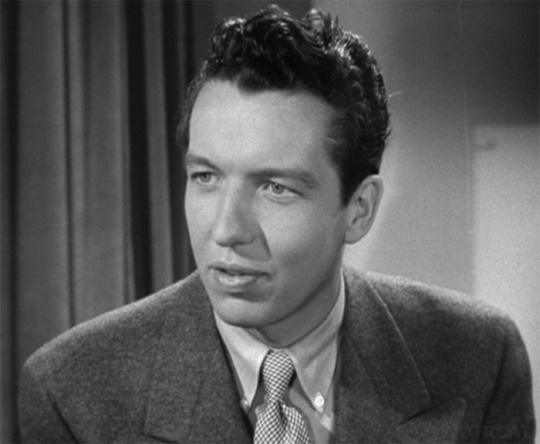
Bob Bailey was fresh off a run as private eye George Valentine in Let George Do It when he was cast as Dollar. He sank his teeth into the king-size scripts, and his performance fleshed out the character in a way that the previous actors had never quite managed to nail down. His Johnny Dollar would more often than not get too involved in his cases, and he might fall too hard for a female suspect. He loved to fish, and his clients might exploit that to persuade him to take a dangerous job in a far-off locale where he could be promised a good catch. He was unpredictable, funny, and dangerous. In the early years, Johnny Dollar was just a radio detective. With Jack Johnstone’s words and Bob Bailey’s voice, he joined the ranks of Marlowe and Spade, characters with long histories on the page behind them.
The series continued in the serial format until 1956 when it returned to 30 minutes once a week. While the individual shows may not have always been as rich as the five-part stories, Bailey’s performance remained strong. He remained in the role until 1960, when CBS shut down its West Coast radio operations and moved its dramatic productions to New York. The show continued for another two seasons; Jack Johnstone continued to provide scripts but was replaced as director. Bob Readick and Mandel Kramer starred as Dollar until he turned in his last expense account on the final night of network radio on September 30, 1962.
Nearly all of the episodes of the show survive, and while each actor brought something unique to the character, it is Bailey’s Johnny Dollar that stands head and shoulders above them all. His wry humor, his hard edge, and his world-weary cynicism come through in every line of his performance, and there are years of episodes for today’s audiences to rediscover and enjoy.
Download this episode
18 notes
·
View notes
Photo
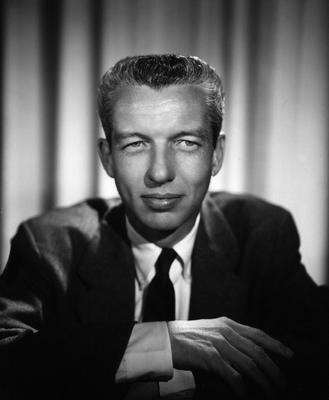



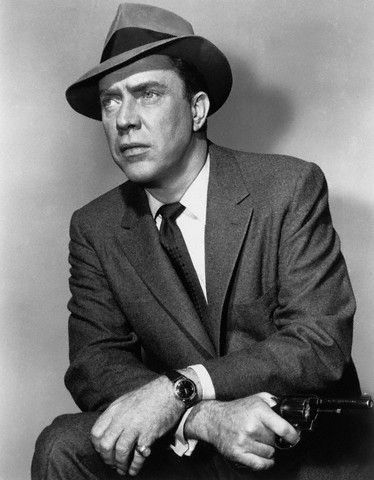
On February 11, 1949, Yours Truly, Johnny Dollar premiered on CBS and kicked off the career of “America’s fabulous freelance insurance investigator.” Dollar traveled the world investigating cases of insurance fraud until 1962. Each mystery was narrated by Johnny as he itemized his expense account for his bosses at “the home office.” The series aired up until the end of the Golden Age of Radio in 1962, and it remains one of the most beloved detective programs of the era.
What made the show work? The format of the show is a great hook - Dollar narrates the story as he itemizes his expense account for his employers. As the case progresses, another expense is rattled off. This was played up for humorous effect in the show’s early days, leading to a frequent announcer tag line - “At insurance investigation, he’s only an expert. At making out his expense account, he’s an absolute genius!“ Dollar was sharp, a bit cynical, and had brains to match his brawn.
But in his first several years on the air, Johnny Dollar was a good - but not great - radio detective. There was little about the show to distinguish it from the sea of detective shows cluttering the airwaves. Three different actors (Charles Russell, Edmond O'Brien, and John Lund) played Dollar between 1949 and 1954. (Dick Powell was actually the first to play Johnny Dollar in a 1948 audition program. Before the show went to series, Powell opted to star in Richard Diamond, Private Detective on NBC.) The insurance investigation angle provided a different flavor for the show, but those early shows weren’t quite in the same league as Sam Spade or Philip Marlowe. The show actually left the airwaves in 1954, and Johnny Dollar might have ended up as a radio footnote had it not been for a revamped series that returned to the air in 1955.
Under the direction of Jack Johnstone, Johnny Dollar was reinvented as a five-night-a-week 15 minute serial. Johnstone was a veteran radio writer and director who previously brought Buck Rogers and Superman to radio. Just before he took the helm of Johnny Dollar, he served as producer and director for the outstanding NBC western series The Six Shooter, which brought Jimmy Stewart to weekly radio as its star. Johnstone served as producer and director of the new series, and he frequently provided scripts. With 75 minutes instead of 30 for stories every week, Johnstone and his fellow writers could deliver complex plots with plenty of twists and turns and nuanced characters with more depth than the usual supporting players in a weekly detective show.
But talent behind the scenes is only part of the story. Johnny Dollar’s renaissance owes as much to the man in front of the microphone - a strong, dynamic actor who breathed life and a personality into the detective. And it was an actor who was no stranger to solving crimes on the airwaves.
Bob Bailey was fresh off a run as private eye George Valentine in Let George Do It when he was cast as Dollar. He sank his teeth into the king-size scripts, and his performance fleshed out the character in a way that the previous actors had never quite managed to nail down. His Johnny Dollar would more often than not get too involved in his cases, and he might fall too hard for a female suspect. He loved to fish, and his clients might exploit that to persuade him to take a dangerous job in a far-off locale where he could be promised a good catch. He was unpredictable, funny, and dangerous. In the early years, Johnny Dollar was just a radio detective. With Jack Johnstone’s words and Bob Bailey’s voice, he joined the ranks of Marlowe and Spade, characters with long histories on the page behind them.
The series continued in the serial format until 1956 when it returned to 30 minutes once a week. While the individual shows may not have always been as rich as the five-part stories, Bailey’s performance remained strong. He remained in the role until 1960, when CBS shut down its West Coast radio operations and moved its dramatic productions to New York. The show continued for another two seasons; Jack Johnstone continued to provide scripts but was replaced as director. Bob Readick and Mandel Kramer starred as Dollar until he turned in his last expense account on the final night of network radio on September 30, 1962.
Much of the show survives, and while each actor brought something unique to the character it is Bailey’s Johnny Dollar that stands head and shoulders above them all. His wry humor, his hard edge, and his world-weary cynicism come through in every line of his performance, and there are years of episodes for today’s audiences to rediscover and enjoy.
In honor of the anniversary, I’ll post an adventure of each of radio’s Johnny Dollars. For more detectives of old time radio, click here to subscribe to the “Down These Mean Streets” podcast in iTunes.
#yours truly johnny dollar#Anniversary#Old Time Radio#Bob Bailey#Edmond O'Brien#John Lund#Golden Age of Radio
26 notes
·
View notes